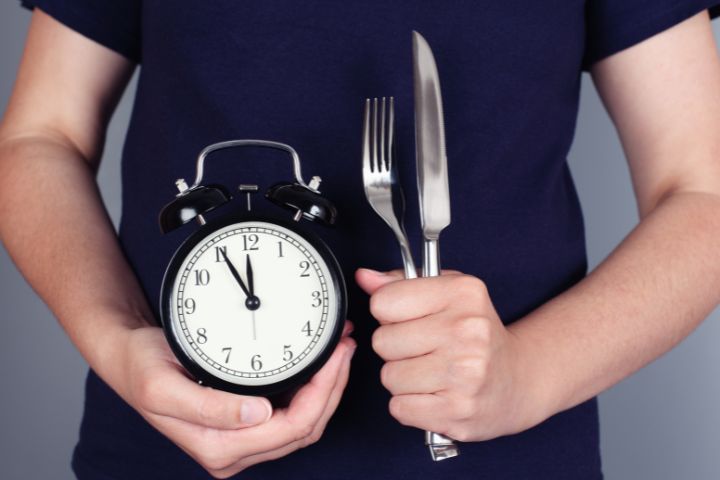

When we eat or what we eat - what's most important?
Food is the fuel that keeps our bodies going, and the internet is full of advice about what, when and how much we should eat in order to look and feel great. The importance of eating healthy food has long been established, even if for some of us it’s difficult to stay on track when tempting treats are on offer.
As the saying goes - you are what you eat. And when this topic arises, the first thing that generally comes to mind is to eat plenty of fruit, vegies and good protein, and cut back on fat, carbs and sugar.
So, unless you’re blessed with a super-fast metabolism, we all know that what we eat is indeed important. But when we eat could be just as important - and we’ll tell you why right here.
Mealtimes affect circadian rhythms
Circadian rhythms are your body’s internal clock that mostly moderates your sleeping and waking patterns. Pretty much anything that you do has a circadian rhythm - for example, most people’s heart rate and blood pressure rise naturally in the afternoon.
So, since our bodies run on a 24-hour clock, these rhythms tell us to be alert when we wake up, automatically sending signals to our digestive system that it’s ready to eat.
Disruptions can increase the risk of certain illnesses
When our circadian rhythms are disrupted, it can increase the risk of heart disease and diabetes. Disruptions can be caused by frequent changes in work shifts or when we travel between different time zones. In cases like these, our circadian rhythms can use some help by using light and food to let our bodies know the time of day, so the clock stays in sync.
Practice intermittent fasting
Plenty has been written about the benefit of intermittent fasting or time-restricted eating. But the circadian rhythm diet puts a slightly different slant on it. Basically it’s all about eating in sync with your body clock and when your body is optimised for digestion and fat burning. You should aim to follow the same eating pattern every day within a 10-hour window – so if you eat breakfast at 8:00am, you should finish eating your last meal of the day by 6:00pm, and try to eat at the same times every day. It’s that simple.
Your last meal of the day shouldn’t coincide with your bedtime
Following the time-restricted eating pattern, you should have at least a 3-hour interval between your last meal of the day and the time you go to bed, as this allows plenty of time for the food to be digested so it doesn’t disturb your sleep.
Breakfast
Breakfast is an important meal because it’s the first food you give to your body after the overnight fast. However, the timing for breakfast varies among different people. Some like to eat soon after they get up, while others prefer to have a quick coffee first up and leave the solid food until a bit later.
Leaving it until later obviously increases the length of your fast (which is considered by many to be a good thing), but on the flip side, breakfast kick-starts your metabolism after a night of rest. Regardless, the important thing is to make healthy choices and of course we all know that a breakfast that includes protein (think scrambled eggs, smashed avo with feta or a protein shake) will help to keep us fuller for longer.
Lunch
Lunch can be the downfall for many of us, unless you’re disciplined and organised enough to bring a healthy lunch to work with you. It’s oh-so-tempting to nip out to the café - and before you know it you’ve said goodbye to some hard-earned cash and consumed way more calories than you meant to.
If you’re trying to lose or maintain weight, we’ve found these 75 delicious and healthy lunch recipes that will keep you looking trim, taught and terrific!
Dinner
Eating dinner earlier in the evening rather than later, is definitely recommended so you don’t head to bed with a heavy tummy, and you should avoid high-calorie foods for your last meal of the day.
Research has also shown that eating late can have negative health effects, including weight gain and an increased risk of heart disease, stroke and diabetes.
Wrapping up
There you have it! When we eat certainly seems to be just as important as what we eat in order to maintain a healthy lifestyle and keep weight under control. If you’re struggling with your weight and need some additional funds to help you shift it, we’re here to help. Just take a look at our cash loans from $500 - $5,000 to find out how quick and easy it is to get your hands on some extra funds. Once a loan is approved, the cash is usually in your bank account within a few hours – so you can start living a healthier life this week!